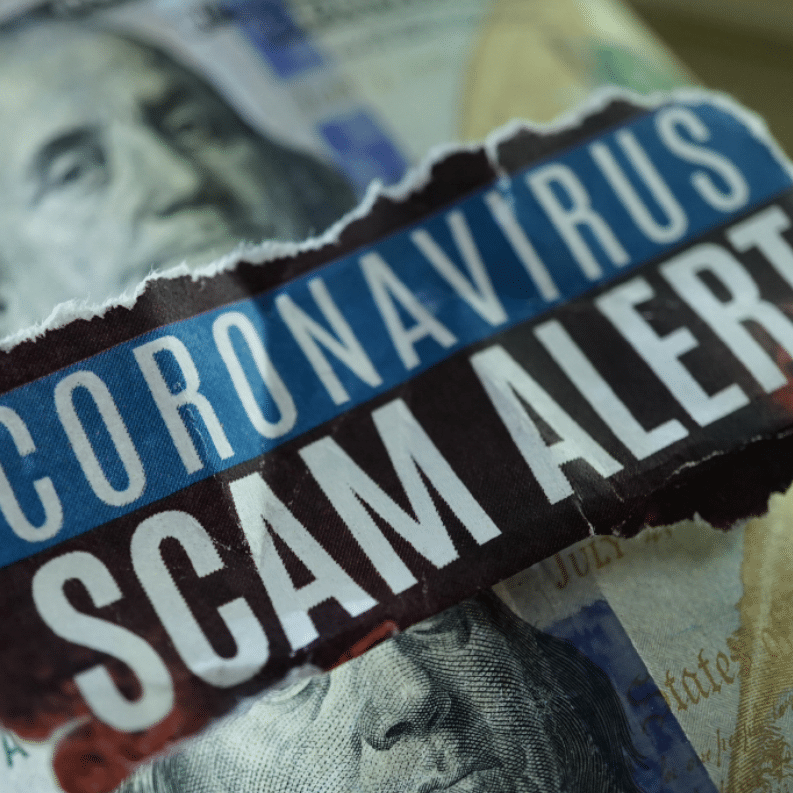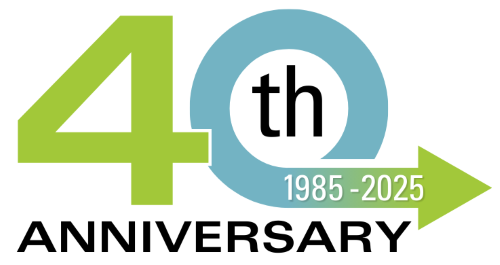Protect Yourself From COVID-19 Scams
Scammers are everywhere, it seems, and they’ve been taking advantage of our fears and vulnerabilities during the COVID-19 pandemic. From contact tracing scams to unemployment fraud, there are many ways to get caught up in an unsavory trap. Luckily, if you know what to watch out for, you can avoid most of them. Let’s review what’s going on out there to make sure you stay safe:
Phishing scams
Phishing is the practice of using fraudulent email or text messages (or even phone calls) to steal money or identities. Scammers try to get access to personal information by requesting victims provide important information or click on a link that installs malware or ransomware on an electronic device. The goal is to get access to bank accounts or other important accounts by stealing social security numbers, passwords, or account numbers.
These scams are tricky because the messages look like they’re being sent from legit companies you know and use, such as banks, social media sites, or online retailers. To trick recipients into clicking a link or opening an attachment, the message might ask for confirmation of personal information, claim there’s a problem with an account, or warn that suspicious activity has been detected. A fake invoice might be attached, or you might be encouraged to click a link.
COVID-19 phishing scams often look like messages from government programs and agencies, public health organizations, or humanitarian groups, like the American Red Cross. These messages might promise cures, vaccines, protective equipment, or even just information. One of the newer scams refers to contact tracing, where messages will inform you that you’ve been exposed to COVID-19 and request that click a link.
To avoid getting hooked and reeled in by this one, make sure you:
- Go to legitimate sites for the CDC and WHO.
- Avoid clicking links or opening attachments from an unsolicited email.
- Never provide personal or financial information in response to an email or call.
- Don’t assume an email with company or agency branding is legitimate.
Fake cures
Scammers are peddling a variety of fake cures and products claiming to prevent or cure COVID-19. Websites and social media are full of pitches for products like essential oils, teas, and vitamin therapies to enhance immunity or protect from the virus. Fake antibody tests, and even phony vaccines, are being sold in an attempt to attain personal data or to use in medical identity theft.
Protect yourself and don’t give in to the temptation of buying something that sounds too good to be true. If you find something that you think is a scam, the FTC has great resources.
Financial fraud
There are a variety of financial schemes that target individuals and businesses. With so many Americans receiving unemployment checks, there’s been an uptick in scams that attempt to steal benefits. Criminals will submit fraudulent unemployment claims by impersonating others after harvesting their personal data thanks to phishing, third-party data theft, or other criminal actions. Individuals may not be aware that criminals are receiving benefits in their own names until they attempt to file a legitimate unemployment claim. Victims may also receive correspondence from the state unemployment agency, get notification from a current employer that a claim has been filed, or receive an IRS form in the mail.

After stimulus checks went out to individuals and families in April and May, scams arose that asked people to sign over their checks or provide personal data. With a second stimulus check possibly on the horizon, it’s important that you don’t let your guard down, as criminals will once again try to scam you out of your federal payment.
Other forms of financial fraud include bank and lender impersonation, as criminals offer phony assistance with student loans, credit card debt, or bills. Small businesses have also been targeted as thieves try to take advantage of the Paycheck Protection Program. Stock scams have even popped up as the U.S. Securities and Exchange Commission has warned investors about fraudulent investments for products that can cure or prevent COVID-19.
Stay safe & shred!
So there you have it. If you stay on top of what’s going on out there, you won’t get taken for a ride. Make sure to share this information with family and friends, especially those who are elderly since they’re more vulnerable to scams. Finally, if you want to make sure you’re keeping your personal information safe from scammers, make sure you destroy old digital media and your paper documents! DataSafe has been keeping the Portland, Oregon area safe for homes and businesses for over 40 years. Contact us today for a free estimate and to schedule service!

Get Your Quote
"*" indicates required fields

